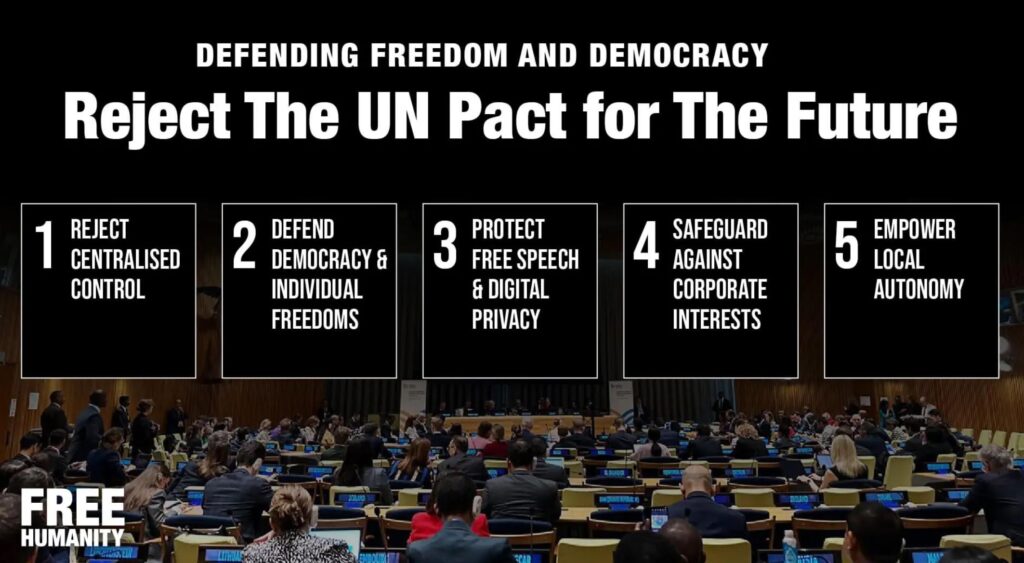The United Nations Summit of the Future and the Threat to Sovereignty
On September 22-23, 2024, the United Nations is set to conduct the Summit of the Future, during which the Pact for the Future will be presented. The summit aspires to tackle pressing global issues such as climate change, inequality, and public health. However, there is growing apprehension that the efforts to address these challenges may compromise essential freedoms, national sovereignty, and democratic principles. Critics argue that the strategies that emerge from this summit could potentially lead to shifts in governance that threaten individual rights and liberties, elevating centralized control at the expense of local decision-making and autonomy.
The focus on globalism may enable structures that favor emergency powers and corporate interests over the personal freedoms of individuals and communities. As the summit seeks to propose comprehensive solutions to global challenges, there is a risk that these solutions might impose blanket regulations that diminish personal freedoms and democratic processes. The implications of centralizing decision-making power could lead to restrictions on free speech and limited avenues for local governance, raising alarms among those who advocate for the preservation of individual rights and sovereignty.
In light of these concerns, it is crucial for citizens and communities to actively engage and assert their rights. The call to action emphasizes signing and disseminating an open letter aimed at defending democracy and individual freedoms against perceived overreach from the United Nations. This movement encourages individuals to demonstrate their commitment to protecting sovereignty by raising their voices and highlighting the need for governance that remains accountable to the people rather than distant bureaucracies.
To further amplify this message, the movement encourages supporters to share information widely across social media platforms and engage in personal conversations that stimulate awareness and discussion about the potential consequences of the UN’s initiatives. By promoting dialogue and raising consciousness about the implications of a more centralized global governance approach, individuals can collectively challenge the trajectory being proposed at the summit, ensuring that the future will reflect the will and interests of the populace rather than a top-down imposition.
Connecting with representatives and advocating for national sovereignty is vital in the face of these global initiatives. Citizens are urged to demand that their governments resist centralization efforts that could erode local authority and individual rights. By holding elected officials accountable, advocates can contribute to a robust defense of freedom, ensuring that the mechanisms of governance remain transparent and aligned with the core democratic values of society.
Neil Radimaker, a journalist and co-founder of The Conscious Resistance Network, underscores the importance of these actions. Through activism and alternative media, he has been committed to fostering individual freedom and promoting decentralized solutions to prevalent societal challenges. His work highlights the need for ongoing resistance against any measures that could compromise democratic principles and individual liberties, with a clear call for collective action to uphold a future that prioritizes the voices and choices of the people over unchecked global authority.

